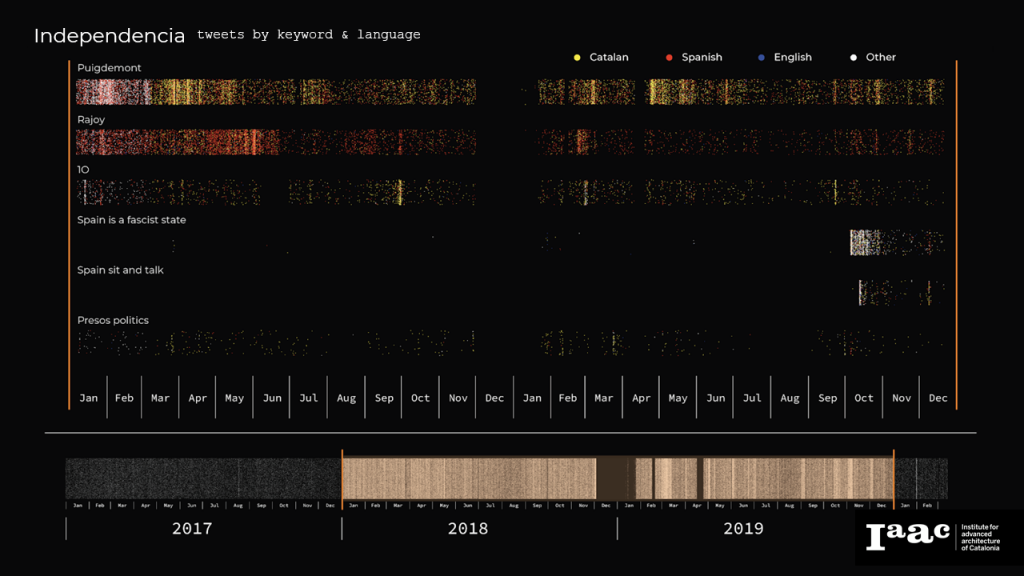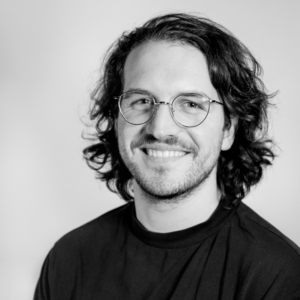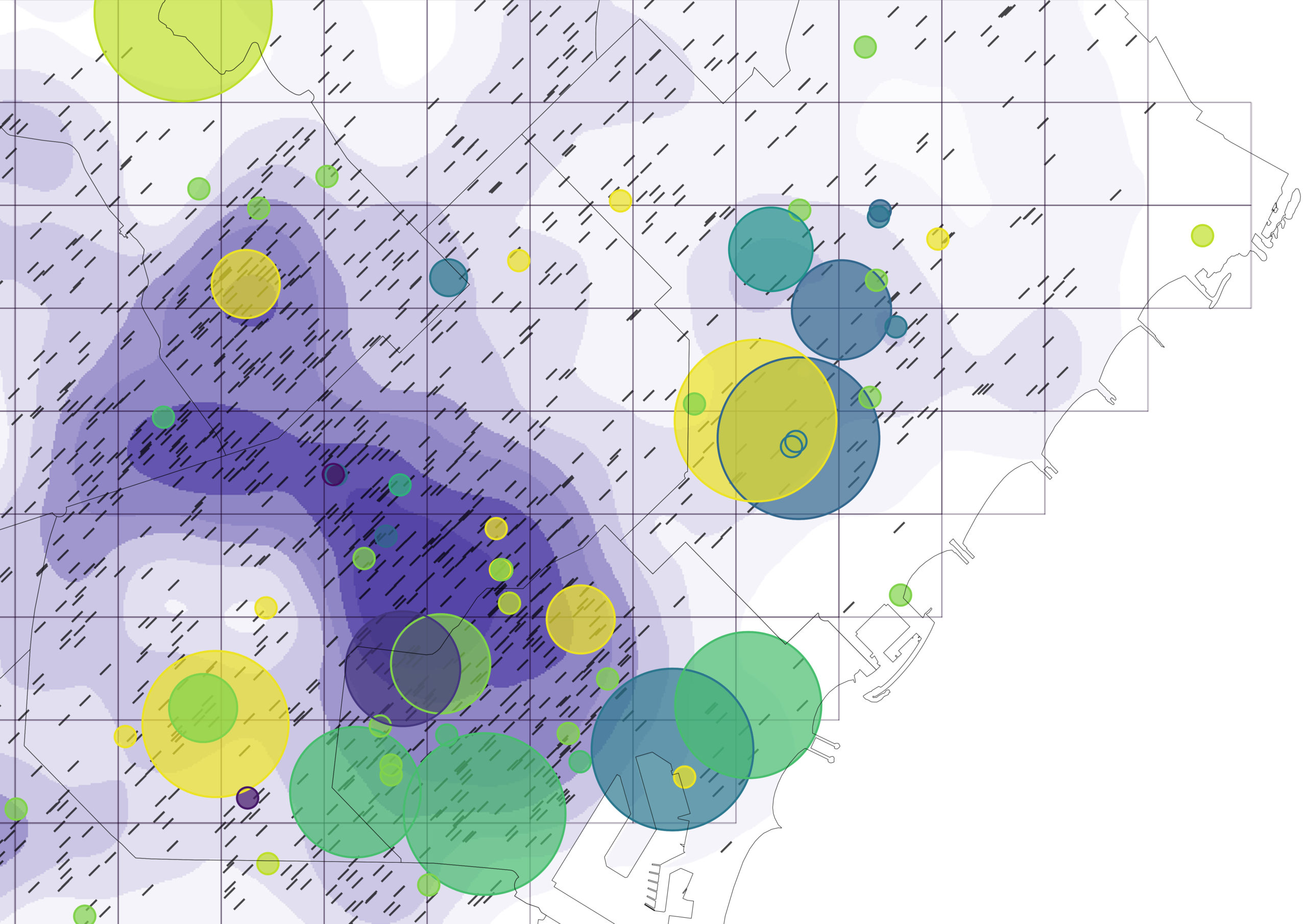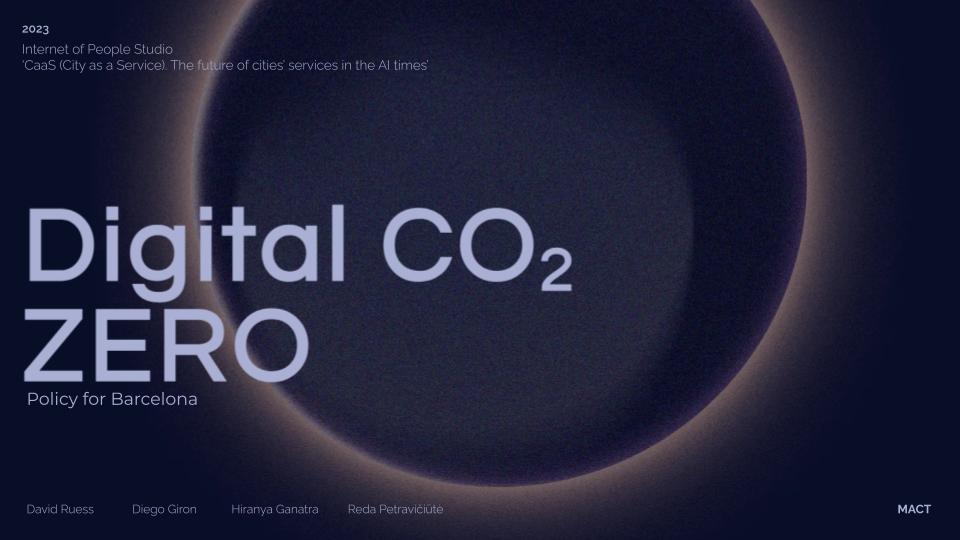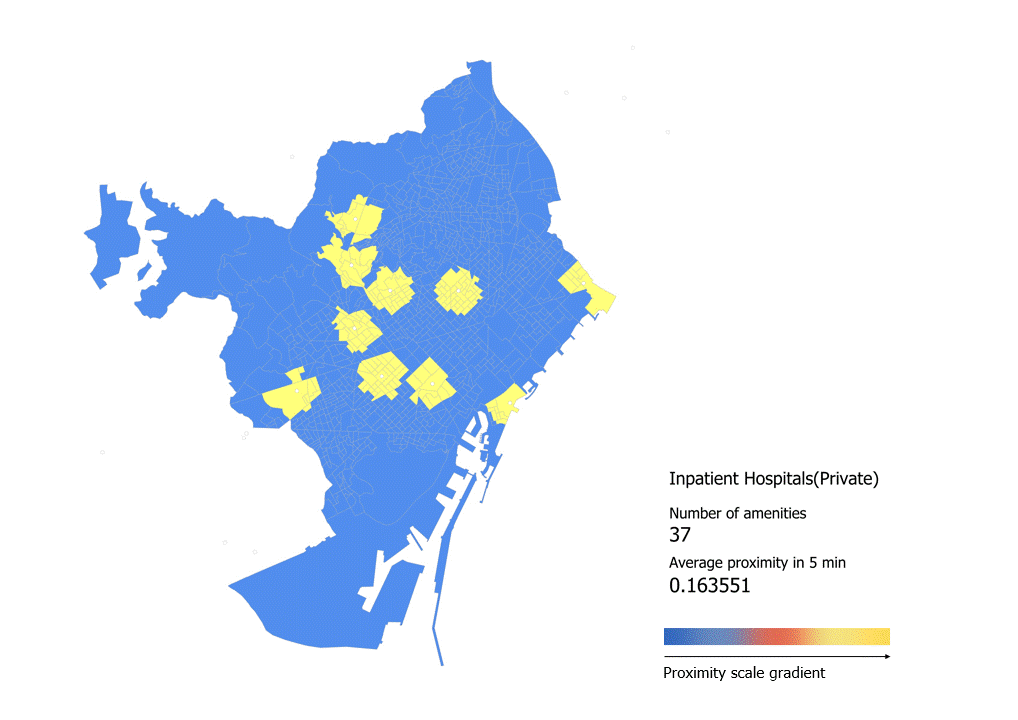Credits: ‘Social Event’. Elijah Munn, Linara Salikhova, Rovianne Santiago, Michelle Rodríguez. Internet of People Studio. 2020.
There are questions to be addressed on reshaping the cities. How AI and new economy revolution will reshape the cities? How these sectors are unfolding on the city of Barcelona and its metropolitan area? Which are the tools to understand these phenomenon? Which are the patterns drawn by the interaction of virtual and physical reality? How people will use de city? Who do we redefine locality?
Which is the role of local public administrations dealing with borderless space? Europe is leading an industrial deglobalizing process, while Barcelona is focusing on pushing up new economies which are driving the future of the city. Positive and negative impacts are being on the center of the political agenda. At what extend those local policies can drive the future of the city?
Context & Agenda
Artificial Intelligence is for the Digital Industry what the Assembly Chain was for the Fordist one. The automation of data processing is disrupting the ways industries, companies and people unfold on cities2. While private agents are speeding up digital processes focused on improving their product or services, post-COVID strategies of the most advanced cities are facing an urban transformation where people’s participation, digital transformation, bio-security and sustainable agendas are becoming a key factor. People’s participation is understood here as the capacity of citizens to take part of a decentralized process of decision making3.
Urban policies on the digital age are primary based on the design of Processes. These processes might evolve all agents in the urban decision making. Furthermore, they should be able to adapt rapidly to changes or mistakes on previous decisions. Cities behave as an organism and their development and set of rules should integrate the same level of dynamism that contemporary events push them up.
These events to come on the next months and years draw a scenario where instability, volatility and uncertainty will gradually disappear, points out Santiago Niño Becerra. The regulation established from the technologies for identifying situations and people in real-time, as Minority Repot anticipated, as the digital traces that each individual leaves on a daily basis, will redefine concepts such as freedom, privacy and intimacy. They will disappear as technologies expand. In return, security will be provided to the whole, thanks to the establishment of regulatory measures that will remind the individual capacities to act. A new system will start from efficiency, excellence and productivity as a leitmotiv. Technology and robotization will be deployed in all areas. Large corporations will have increasingly visible importance. The idea of individuality will disappear as a regulation dynamic enters. In the new model, personal skills will lead the training of people with high capacities, which will be exploited through plans supported by projects, and where global urban poles will increasingly act as high education people hubs.
Throughout 2030, technology, in any of its manifestations: Artificial Intelligence, robotics, neural networks, quantum computers … will be a daily reality. Private property will have no practical sense, so payment for access to use will be the usual formula to dispose of goods and services. Acting in a sustainable way will be the norm, ceasing to be considered a cost. Small and medium-sized businesses will either disappear, or become satellites of corporations. And the craftsmen, understood as a professional, will be recognized for dedicating himself to developing valuable products. Capitalist individual freedom will cease to make sense because the reference will become the common and collective good understood as a whole.

